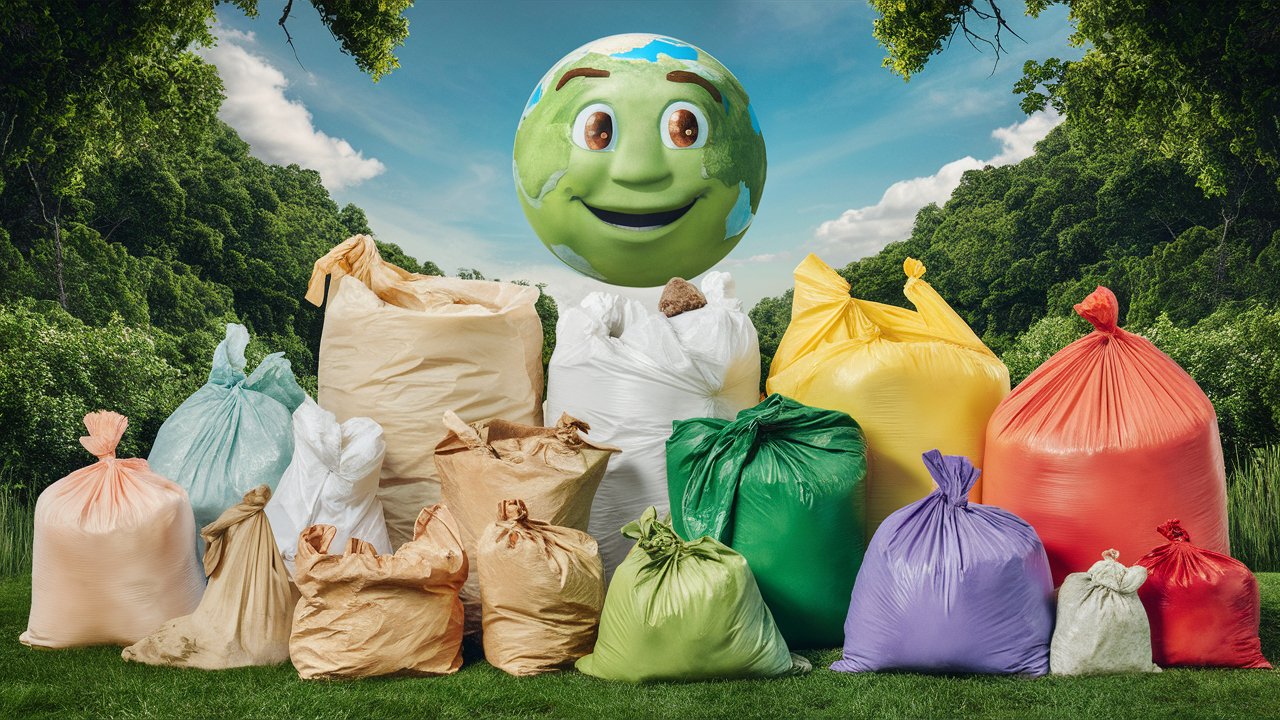
Introduction
In today’s world, the pressing need for sustainability and environmental responsibility has never been more apparent. As global citizens, we are increasingly aware of the impact our choices have on the planet. One such choice is the type of garbage bags we use. Traditional plastic bags, which are non-biodegradable, contribute significantly to pollution and landfill waste. In contrast, eco-friendly biodegradable garbage bags offer a sustainable alternative that aligns with our efforts to protect and preserve the environment. This article delves into the importance, benefits, and usage of biodegradable garbage bags, emphasizing their role in fostering a greener planet.
What Are Biodegradable Garbage Bags?
Biodegradable garbage bags are designed to break down naturally in the environment. Unlike conventional plastic bags made from petroleum-based polymers, these eco-friendly alternatives are made from natural materials such as cornstarch, vegetable oils, and other plant-based ingredients. When disposed of, biodegradable bags decompose through the action of microorganisms, sunlight, and moisture, leaving behind no harmful residues. This decomposition process typically takes months, depending on environmental conditions, as opposed to the hundreds of years it takes for traditional plastic bags to degrade.
The Environmental Impact of Traditional Plastic Bags
Traditional plastic garbage bags have been widely used for decades due to their durability and low cost. However, the environmental cost is staggering. These bags contribute to the growing problem of plastic pollution, which harms wildlife, contaminates oceans, and fills up landfills. Once in the environment, plastic bags can take up to 1,000 years to decompose, during which time they break down into microplastics. These tiny particles infiltrate ecosystems, affecting the food chain and posing health risks to animals and humans alike.
Moreover, the production of plastic bags relies heavily on fossil fuels, contributing to carbon emissions and the depletion of natural resources. As the world grapples with climate change, reducing our reliance on plastic products, including garbage bags, is crucial for mitigating environmental damage.
Advantages of Using Biodegradable Garbage Bags
1. Reduced Environmental Footprint
One of the most significant advantages of biodegradable garbage bags is their minimal environmental footprint. Made from renewable resources, these bags reduce our dependence on fossil fuels and decrease carbon emissions during production. Furthermore, their ability to decompose naturally means they don’t contribute to long-term pollution or landfill overcrowding.
2. Non-Toxic and Safe for Wildlife
Unlike traditional plastic bags, which can be harmful to wildlife, biodegradable garbage bags break down into non-toxic components. Animals that accidentally ingest these bags are less likely to suffer from blockages or poisoning, making biodegradable options a safer choice for the environment.
3. Compostable Options Available
Many biodegradable garbage bags are also compostable, meaning they can be broken down in a composting facility along with organic waste. This feature is particularly beneficial for households and businesses that compost their waste, as it ensures that all materials in the compost bin, including the bag, are environmentally friendly.
4. Support for a Circular Economy
By choosing biodegradable garbage bags, consumers support a circular economy where products are designed to be reused, recycled, or composted. This approach reduces waste, conserves resources, and promotes sustainability.
How to Choose the Right Biodegradable Garbage Bags
1. Check for Certification
When selecting biodegradable garbage bags, it’s essential to look for products that are certified by recognized environmental organizations. Certifications such as the Biodegradable Products Institute (BPI) or the European Bioplastics Association (EN 13432) indicate that the bags meet specific standards for biodegradability and compostability.
2. Consider the Material
Different biodegradable bags are made from various materials, each with its properties. Cornstarch-based bags, for example, are commonly used for their strength and compostability, while other bags may be made from PLA (polylactic acid) or PBAT (polybutyrate adipate terephthalate), which offer different levels of durability and decomposition rates. Choose a material that suits your needs, whether for household waste, yard waste, or commercial use.
3. Match the Bag to Your Waste Disposal Method
It’s important to select biodegradable garbage bags that are compatible with your waste disposal method. If you compost, ensure the bags are certified compostable. For regular trash, opt for biodegradable bags that will decompose in landfills or waste-to-energy facilities.
4. Size and Thickness
Biodegradable garbage bags come in various sizes and thicknesses, so it’s crucial to choose the right fit for your bins and the type of waste you generate. Thicker bags are more suitable for heavy or sharp waste, while thinner bags are ideal for light or compostable materials.
Proper Disposal of Biodegradable Garbage Bags
To maximize the environmental benefits of biodegradable garbage bags, it’s important to dispose of them correctly. These bags should be placed in environments where they can decompose, such as compost bins, landfills that support biodegradation, or waste-to-energy facilities. Avoid disposing of biodegradable bags in regular recycling bins, as they can contaminate the recycling process.
The Future of Waste Management
The adoption of biodegradable garbage bags is just one step towards a more sustainable future. As technology advances, we can expect further innovations in waste management, including the development of new materials and methods for reducing waste. However, individual choices, such as opting for biodegradable products, play a crucial role in driving demand for eco-friendly alternatives and encouraging businesses to prioritize sustainability.
Conclusion
In conclusion, eco-friendly biodegradable garbage bags are a practical and sustainable alternative to traditional plastic bags. By making the switch, we can significantly reduce our environmental impact, protect wildlife, and support the global movement towards sustainability. As consumers, our choices matter, and by choosing biodegradable options, we contribute to a greener, cleaner planet for future generations.


